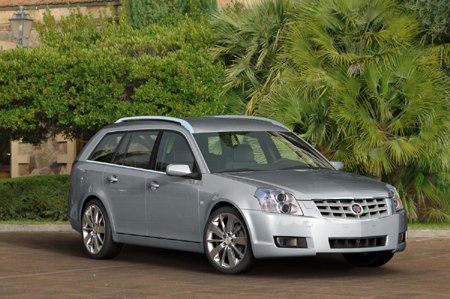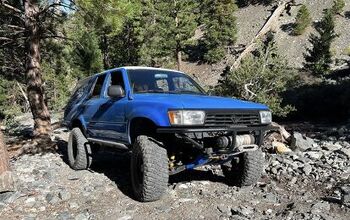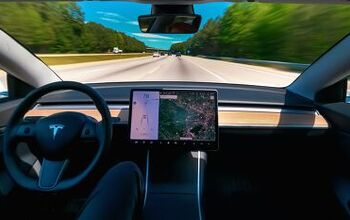The Origin of Automotive Species
Ours is a global economy. Like water cascading downhill, carmaking naturally flows to those countries providing the optimal combination of exchange rates, natural resources, transportation infrastructure and, of course, inexpensive labor. As a result, the U.S. auto industry now stuffs its cars with Chinese parts and assembles them in South Korea, Mexico, Brussels, Australia and more. While pundits bemoan outsourcing’s effect on America’s blue collar jobs, this internationalization exacts a hidden toll near and dear to pistonheads’ hearts: it erases product personality.
Once upon a time, cars had national personalities. American cars were comfy. German cars were robust. Japanese cars were inexpensive (reliability came later). Swedish cars were safe. British cars were a pleasure to drive. Nowadays, everyone does everything. An American car must be robust, comfortable, inexpensive, safe and a pleasure to drive. As must a German, Japanese, Swedish and British car. That’s great as far as it goes; but it doesn’t go far enough.
In their feverish desire to meet regulatory standards and internationalize production– to create a “global car” that appeals to everyone everywhere– manufacturers have eliminated their vehicles’ culturally-derived quirks. In fact, today’s cars feel as though they’ve gone through an automotive spell checker, making sure that the car has been completely cleansed of error. The result: tremendous overall quality bereft of genuinely distinctive character.
More specifically, GM owns (part or whole) thirteen automakers spread throughout the U.S., Korea, Australia, Sweden, England and Germany. As The General rushes towards epic cross-border cross-fertilization, shuffling cars like a Las Vegas dealer, we can already see the loss of national character. Saabilac? Caddibu? Holdeniac? GM’s willingness to ignore regional character is quickly draining any remaining life from their once vibrant portfolio of car brands.
To see the failure of the “global car” logic, consider Saturn. Justin Berkowitz’ review of the Saturn Astra praises its German-ness (e.g. handling, hatch configuration). Fair enough. But what happened to Saturn’s Tennessee roots? Where’s the straight-shooting all-American ethos that informed both the product and its dealers? Gone. And with it, Saturn as a coherent, indeed appealing automotive brand. Just like Saab. And Volvo.
Call me a recidivist, but I reckon a Saab is/was/should be a Swedish hatch– not a German-built sedan or modified American SUV. By the same token, a Volvo is/was/should be a sturdy sedan or wagon– not an inherently dangerous, frivolous convertible. Sure, you could dismiss these objections as senseless carping born of pistonhead preconceptions. But I view our brotherhood as an early warning system. Enthusiasts everywhere are signaling that something important is getting lost in translation, and we’re not wrong.
On the mainstream side, it’s become increasingly clear to observers both inside and outside Toyota that their rapid expansion of American production has eroded vehicle quality. To protect their brand, ToMoCo is launching various initiatives AND quietly scaling-back plans to expand U.S. production. Not to diss American workers, it’s a sure sign that the Japanese automaker “gets it;” they understand importance of location, location, location. Or, if you prefer, culture, culture, culture.
In this, they are not alone.
Volkswagen has recently learned the perils of international outsourcing– and the importance of national character– the hard way. After years of producing truly dreadful North American-bound Golfs in Brazil, VW finally realized that protecting the model’s rep mandated moving production back to its ancestral home. The reborn GTI looks, feels and drives like a “proper” German car. It’s been rewarded with a well-deserved spike in U.S. sales, and a welcome return to street credibility.
Vee Dub’s decision has paid off in all aspects… except financially. Industry analysts report that they’re losing money on their award winner, an inevitable result of exchange rates and financially onerous German labor contracts. Still, which is better: building a singular, world-class product domestically that forces you to address your cost basis at home, or building a meh car abroad that offers the chances of greater profits but doesn’t deliver them and, worse, eventually destroys the brand?
Of course, this raises another question: for a car to embody its national character, does it have to be owned by a local corporation? Maybe. On one hand, BMW’s MINI and VW’s Bentley say no. On the other, Daimler’s Chrysler and Ford’s Jaguar say Hell yes. The key differential: top management must be slaves to the brand, and recognize that the brand is deeply, profoundly, fundamentally national in origin.
When it comes to car design and quality, all but the most blinkered beancounter can see that ignoring the importance of national history and culture leads to machines devoid of personality. And in the current hypercompetitive car market, REAL personality is vital to any automotive brand’s long-term success. In this case, those who do not learn from history are condemned not to repeat it, and, inevitably, suffer the consequences.
More by Andrew Wentz
Latest Car Reviews
Read moreLatest Product Reviews
Read moreRecent Comments
- Lorenzo I shop for all-season tires that have good wet and dry pavement grip and use them year-round. Nothing works on black ice, and I stopped driving in snow long ago - I'll wait until the streets and highways are plowed, when all-seasons are good enough. After all, I don't live in Canada or deep in the snow zone.
- FormerFF I’m in Atlanta. The summers go on in April and come off in October. I have a Cayman that stays on summer tires year round and gets driven on winter days when the temperature gets above 45 F and it’s dry, which is usually at least once a week.
- Kwik_Shift_Pro4X I've never driven anything that would justify having summer tires.
- Scotes So I’ll bite on a real world example… 2020 BMW M340i. Michelin Pilot Sport 4S. At 40k now and I replaced them at about 20k. Note this is the staggered setup on rwd. They stick like glue when they are new and when they are warm. Usually the second winter when temps drop below 50/60 in the mornings they definitely feel like they are not awake and up to the task and noise really becomes an issue as the wear sets in. As I’ve made it through this rainy season here in LA will ride them out for the summer but thinking to go Continental DWS before the next cold/rainy season. Thoughts? Discuss.
- Merc190 The best looking Passat in my opinion. Even more so if this were brown. And cloth seats. And um well you know the best rest and it doesn't involve any electronics...


































Comments
Join the conversation
I said back in the 80s that Toyota and Honda will go down the tubes when building cars in the USA was just beginning to take off. 10 years later, it has happened to Toyota and now, I see it happening to Honda. Now, I hear that UAW folks are getting mad because Toyota is slowly moving production back to Japan after their rep has been trashed when left in American hands...not factory line workers, I'm talking about product development, engineering standards, and quality standards. Americans just don't get it when it comes to the small details that workers can't be taught but rather imbred in them via their home culture. I wouldn't shed a single tear for American workers, both white and blue collar if Toyota moved their production back to Japan...only a "good for them". Who knows, Toyotas may gain a bit of sport for a change. After all, the sporty Honda Fit has just replaced the Toyota Corrola as the best selling car in Japan. The cachet of the good ol' days would build brand rep, despite lowering profits.